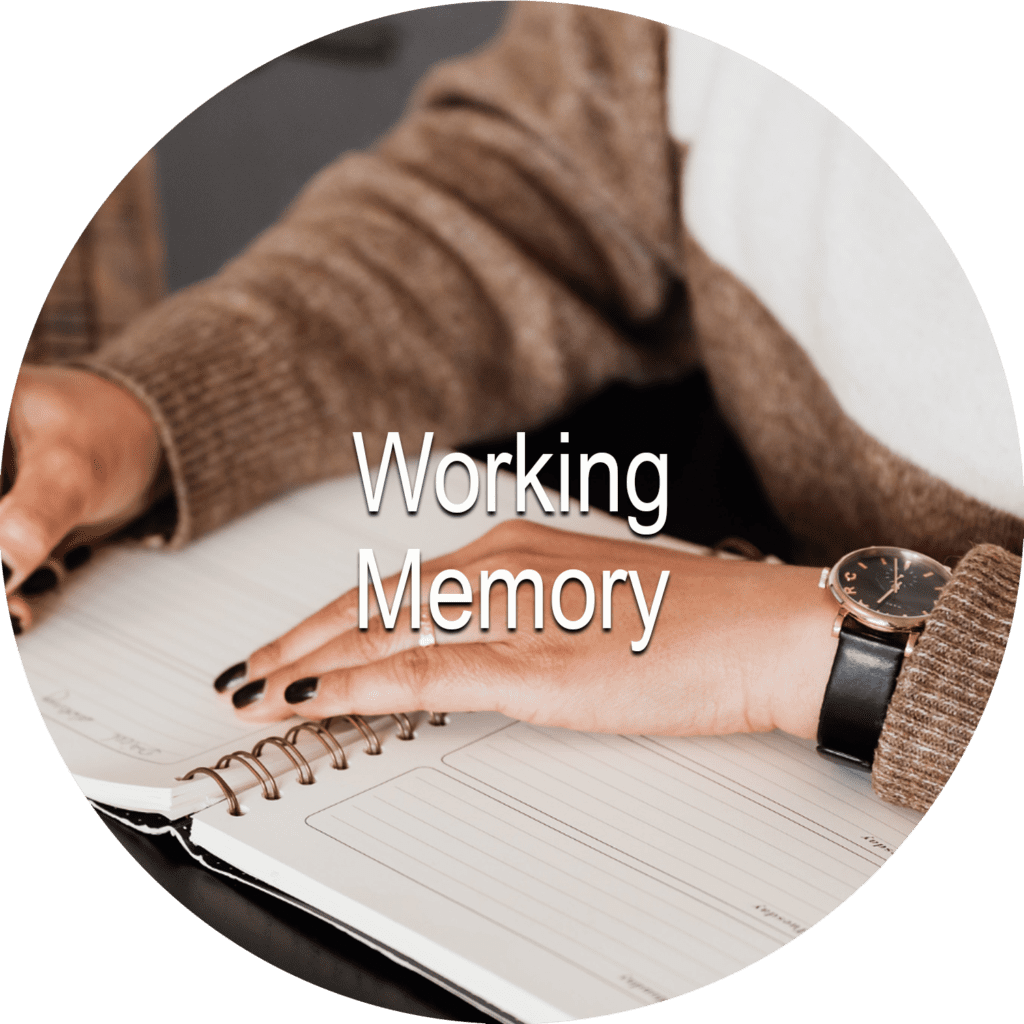What is working memory?
Working memory is a cognitive system that holds and manipulates information over short periods of time. It’s a crucial part of the mental architecture that allows us to carry out complex cognitive tasks such as learning, reasoning, and comprehension. Here are some key points about working memory:
- Mental Notepad: Think of it as a mental notepad where you jot down information you need to keep in mind for a short time. It’s where you store a phone number you just heard or the steps of a recipe while you’re cooking.
- Limited Space: This mental notepad has limited space. It can only hold a few pieces of information at a time. That’s why it’s hard to remember a long list of items without writing them down.
- Active Work: isn’t just about storing information. It’s also where you actively work with that information. For example, if you’re doing a math problem in your head, you’re using your memory to keep track of the numbers and do the calculations.
- Different Parts: Working memory has different parts that handle different types of information. One part might handle words and numbers, while another part handles images and maps.
- Helps with Tasks: Working memory helps us with lots of different tasks, like understanding what we read, solving problems, and learning new things. It’s like a mental juggling act where we keep different pieces of information in the air while we do something else.
- Different for Everyone: Everyone’s working memory is a little different. Some people can juggle more pieces of information at once than others. And if you have a hard time with working memory, it can make some tasks more challenging.
- Linked to Conditions: Problems with working memory can be a part of different conditions like ADHD and Alzheimer’s disease. But there are also strategies and tools that can help people improve their working memory skills.
How does memory impact success?
Working memory plays a significant role in determining success in various areas of life. Here’s how:
- Academic Achievement: It’s crucial for learning. Students use it to keep track of new information, follow complex instructions, and understand new concepts. Those with strong skills in this area often excel in their studies.
- Career Progress: In professional settings, it’s important for remembering instructions, organizing tasks, making decisions, and problem-solving. Employees who excel in this area often perform their jobs more efficiently and effectively.
- Social Interactions: It also plays a role in social situations. It helps individuals keep track of conversations, remember important details about people they meet, and respond appropriately in social interactions. Those with strong skills in this area often have more successful and satisfying social relationships.
- Personal Goals: On a personal level, it’s essential for achieving goals. Whether it’s following a new recipe, learning a new hobby, or planning a trip, it helps individuals keep track of the necessary steps and details.




